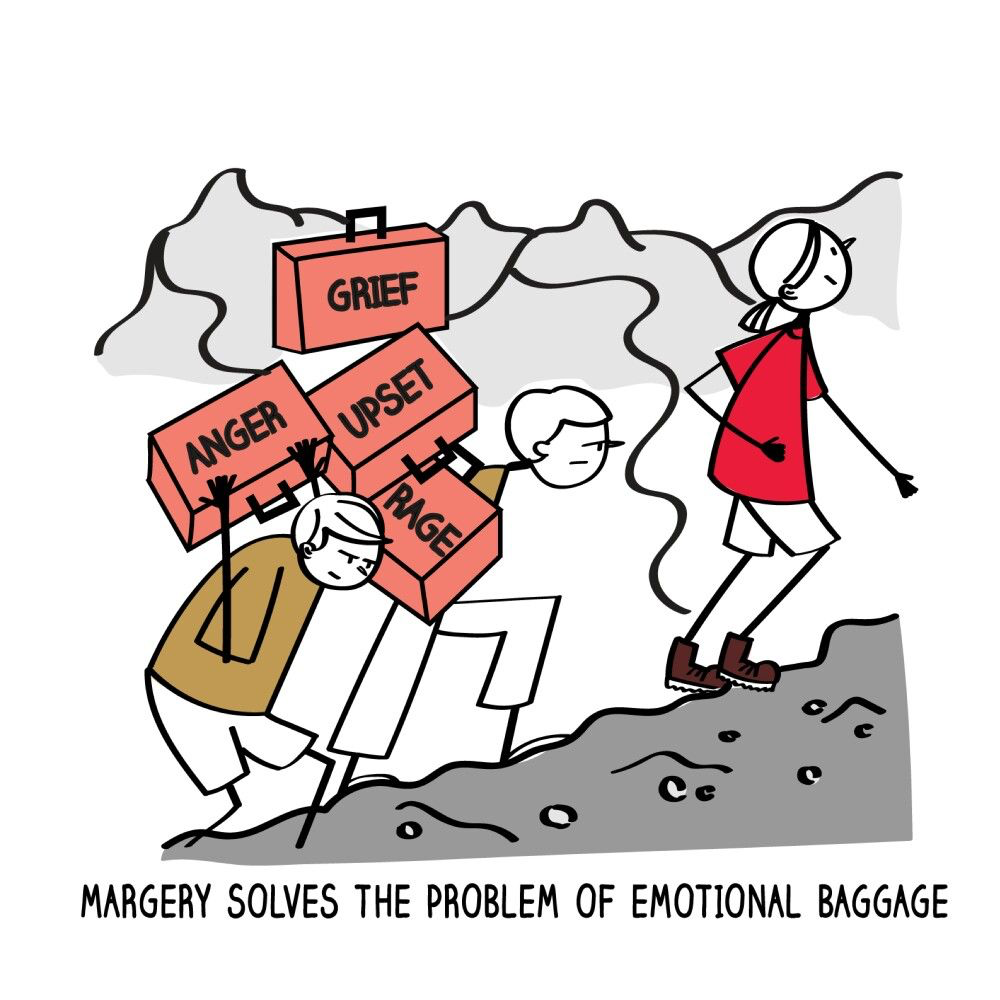Is my emotional baggage affecting my child
If you often find yourself feeling irritable, depressed, anxious, angry, lonely, or not being understood by friends and family, there is a possibility that you have been carrying around some emotional baggage. Emotional baggage refers to unresolved emotional issues and pain we have experienced that continue to stay with us and affect our present relationships. More often than not, the building up of emotional baggage begins during our childhood. Emotional baggage can build up as a result of being subjected to bullying, abuse, inconsistent parenting, traumatic events, a chaotic environment, feeling unheard, or a lack of emotional support. If not addressed at the right time, the emotional scars of past experiences can lead us to living with a lot of pain, sadness, resentment, and guilt.
While there is no one reason that can lead an individual to develop and live with an emotional baggage, we can say that the emotional baggage can sometimes linger on for a lifetime if not addressed and can affect us in more ways than we can think of. If left unresolved, these emotional issues can affect our physical, mental and emotional wellbeing. They also almost always affect our interpersonal relationships which can lead to further emotional distress.
Emotional baggage is something we might all carry, but it only becomes an obstacle when it overflows. It usually starts affecting us as we have not developed adequate coping skills. It not only affects us personally but can have an impact on our family and especially our children. As parents we need to be mindful that our emotional baggage is not coming in the way of effective parenting and our emotional scars do not have an impact on the way we interact with our children. Healing our emotional baggage might seem like an uphill task, but it is definitely worth the effort as we would continue to see the world through a negative lens unless we don’t heal. It is a known fact that children form their world view on the basis of what they observe, and if we as parents constantly perceive the world from a tainted lens, our children can get influenced by the same.
When we as parents are carrying our own emotional baggage, it can sometimes manifest in ways like comparing siblings, constantly fighting with your spouse, throwing temper tantrums, self-criticism, anger outbursts, constantly seeking validation, inability to trust and more, without realizing it. The emotional baggage that we carry might prevent us from being emotionally available for our children and nurturing them. This can result in a void in their lives, or they might develop unhealthy coping strategies like social media overuse, self-harm, substance abuse, avoidance, aggression. They might even be full of resentment towards a parent who they feel was not around to support them when they needed it the most. Emotional baggage and dysfunctional thinking patterns can easily brush on to our children. So, healing our own emotional baggage reduces the risk of passing it on to them.
You might wonder what it is that you can do to let go of your own emotional baggage. Well, begin by looking at it closely and trying to understand how it is impacting your life. Once you develop this awareness, it might become easier to be motivated enough to make changes in one’s life. Next, identify your triggers and the source of your emotional pain. For example, if an adult was overly criticized as a child, s/he might not have the confidence and find it difficult to make important decisions. Avoid suppressing your difficult emotions or trying to escape from them as this will only strengthen their grip. Acknowledge difficult feelings and accept that it is absolutely okay for you to feel like that.
Once you understand the source of your emotional baggage, it becomes easier to accept your feelings as now you understand why you feel the way you do. It might seem overwhelming to let go of something one has been holding on to for so long. Sometimes holding on to things can also feel more comfortable as it has become a habit. But with patience and practice, we can definitely let go of it. Let us just remember to be kind and compassionate towards ourselves. We owe it to ourselves!
